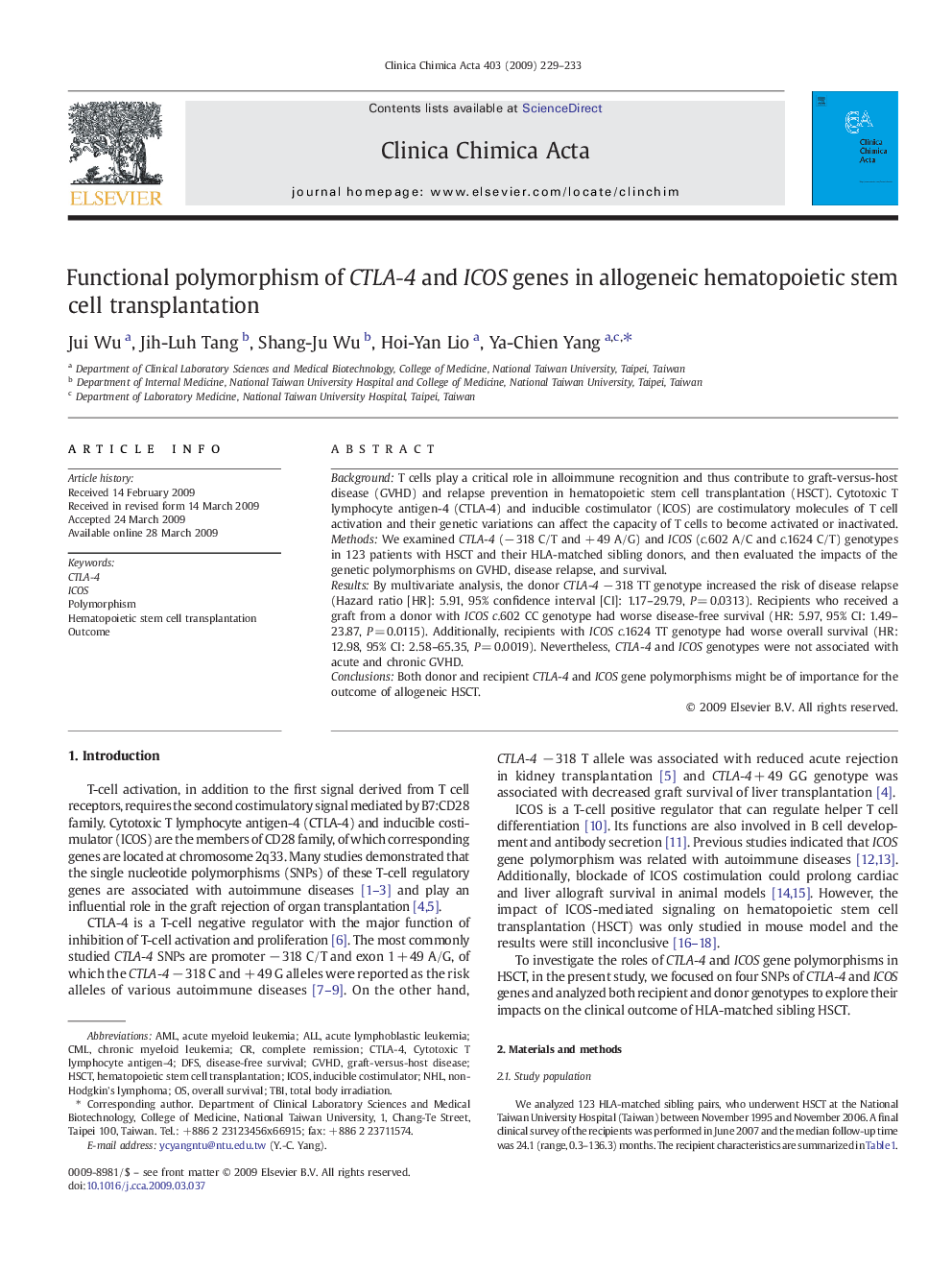| Article ID | Journal | Published Year | Pages | File Type |
|---|---|---|---|---|
| 1966687 | Clinica Chimica Acta | 2009 | 5 Pages |
BackgroundT cells play a critical role in alloimmune recognition and thus contribute to graft-versus-host disease (GVHD) and relapse prevention in hematopoietic stem cell transplantation (HSCT). Cytotoxic T lymphocyte antigen-4 (CTLA-4) and inducible costimulator (ICOS) are costimulatory molecules of T cell activation and their genetic variations can affect the capacity of T cells to become activated or inactivated.MethodsWe examined CTLA-4 (− 318 C/T and + 49 A/G) and ICOS (c.602 A/C and c.1624 C/T) genotypes in 123 patients with HSCT and their HLA-matched sibling donors, and then evaluated the impacts of the genetic polymorphisms on GVHD, disease relapse, and survival.ResultsBy multivariate analysis, the donor CTLA-4 − 318 TT genotype increased the risk of disease relapse (Hazard ratio [HR]: 5.91, 95% confidence interval [CI]: 1.17–29.79, P = 0.0313). Recipients who received a graft from a donor with ICOS c.602 CC genotype had worse disease-free survival (HR: 5.97, 95% CI: 1.49–23.87, P = 0.0115). Additionally, recipients with ICOS c.1624 TT genotype had worse overall survival (HR: 12.98, 95% CI: 2.58–65.35, P = 0.0019). Nevertheless, CTLA-4 and ICOS genotypes were not associated with acute and chronic GVHD.ConclusionsBoth donor and recipient CTLA-4 and ICOS gene polymorphisms might be of importance for the outcome of allogeneic HSCT.
